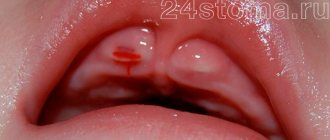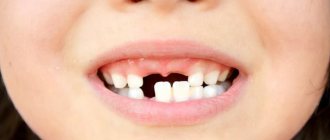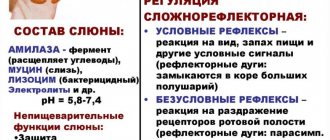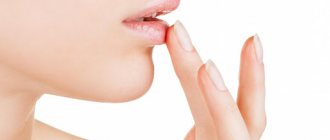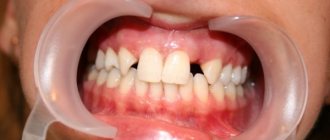Salivation is a natural physiological process that occurs throughout a person’s life. Special glands located in the oral cavity are responsible for it.
They are capable of producing about 2 liters of saliva per day. Sometimes the amount of saliva produced increases sharply, which significantly affects the quality of life. This is especially common in childhood.
Increased salivation in a child can be caused by various reasons, both natural and pathological. To understand this issue, it is necessary to consider what role saliva plays in the life of a child’s body.
Functions of saliva
Firstly, it is involved in the digestion of food, making it softer and helping it move through the esophagus. The enzymes contained in saliva are capable of breaking down starch and fats. Thus, food enters the stomach already partially digested.
Secondly, saliva plays a protective role, preventing the mouth from drying out and having a bactericidal effect. It helps to wash away food debris, and with it bacteria. Saliva neutralizes many acids and alkalis, protecting tooth enamel from their aggressive effects. It is also able to strengthen the enamel, nourishing it with important microelements (fluorine, phosphorus, calcium).
Thirdly, it helps make teething less painful by reducing inflammation in the gums. And finally, in the first months of a baby’s life, saliva has a special viscosity, which makes breastfeeding easier during natural feeding.
Actions to take when spitting up
Sometimes spitting up is easier to prevent than to treat. This does not always apply to cases where regurgitation is not physiological in nature and requires specialist supervision and possible surgical intervention.
So, simple tips to help minimize regurgitation:
- The first time the baby is put to the breast. Try to master this skill while still in the maternity hospital, turning to medical staff for help. You can also seek advice from a breastfeeding specialist. A baby who is properly attached to the breast will swallow less air during feeding, which will reduce the risk of regurgitation and stomach problems in the form of excessive gas formation.
- Get your baby used to lying on his tummy on a hard surface before feeding. This is a kind of massage that also has a beneficial effect on the baby’s stomach, reducing regurgitation and preventing colic and bloating.
- Before feeding, you can do a light massage of the abdomen in a clockwise direction, and light exercises.
- Try not to make your baby scream from hunger, as he will definitely swallow excess air, which will become a likely cause of regurgitation and just a bad mood. If this happens, try to calm the baby down first, and then start feeding.
- If feeding formula from a bottle, make sure it is full. The nipple of the bottle should be filled with milk, not air. Particular attention should be paid to the nipple, namely the hole in the nipple. It must be selected according to the age of the child. The inscription on the box of the bottle will help with this, indicating what age the nipple is designed for. The hole in the nipple regulates the flow of fluid and avoids choking during feeding.
- If during the feeding process the baby stops or begins to arch and cry, you can stop feeding and help the baby burp out excess air. To do this, take him in your arms, position him facing you so that the baby's arms and his head are on your shoulder. The baby will burp and perhaps return to eating again.
- Don't overfeed your baby. It is worth increasing the number of feedings, but reducing the portion. When bottle-feeding, the doctor will calculate the rate of food intake at a time and the total amount per day, based on the age and weight of the baby.
Many pediatricians, gastroenterologists, and surgeons take into account the recommendations of the working group of the European Society of Gastroenterology and Nutrition:
- position treatment
- use of therapeutic nutrition
- medication use
- surgery
- Treatment by position. During feeding, it is important to ensure that the baby is in a position in which the head and upper body are raised above the rest of the body. For this purpose, you can use a pillow or diaper. After feeding, hold the baby in a column to allow excess air to escape. Do not swaddle your baby tightly so as not to squeeze the stomach. After feeding, it is recommended to place the baby on his stomach or right side. But WHO recommends putting your baby to sleep only on his back.
- Medical nutrition. This means more frequent feedings with smaller portions. For children who are bottle-fed, the doctor may recommend the use of a therapeutic antirefluxor formula (AR is its designation on the package). These mixtures have an increased proportion of casein relative to whey proteins, so they are thicker, which prevents their release through the esophagus. Also, these types of foods are often enriched with thickeners, for example, starch or gum - a substance that, under the influence of the acid of the stomach contents, becomes thicker. This substance has the peculiarity of not being dissolved by enzymes, which allows it to remain thick in the stomach longer. It also promotes the active movement of food into the intestines from the stomach.
For more information about artificial feeding, read our article “Artificial feeding: feeding rules and types of formulas.”If the child is breastfed, then, on the recommendation of a doctor, the mixture can be added to the diet and enter the child’s body before milk. The duration of use of this mixture is about 3 months.
- Drug treatment. It is prescribed by a doctor, if the previously indicated methods have not brought results, then it is possible to treat with medications that can significantly improve the contraction of the intestinal walls.
- Surgical intervention. This is an extreme measure when the main cause of regurgitation is pathology.
Now more specifically about each:
Causes of increased salivation in children
Excessive drooling is scientifically called hypersalivation. In children, there are clearly visible age periods when it can occur most intensely.
Important! There is a distinction between true and false hypersalivation.
True hypersalivation is caused by malfunctions of the salivary glands, and false hypersalivation (also called reflex) in childhood is associated with more serious disorders in which swallowing saliva becomes less frequent.
For example, if the sensorimotor arc malfunctions, the interaction between the brain and the oral cavity is difficult. The child's number of spontaneous swallows is reduced, which creates the appearance of profuse drooling. Depending on the age, the causes of increased salivation in children may be different.
Causes of drooling can be physiological and pathological
Dangerous symptom?
Increased salivation in a child can be a sign of a dangerous disease, which is important to quickly pay attention to and provide assistance to the baby. Strong salivation in a toddler older than 4 months is a possible sign of the following disorders:
- Viral or bacterial infection. Secondary symptoms include nasal congestion and difficulty breathing.
- Congenital abnormality of the swallowing reflex or pseudobulbar syndrome - dysfunction of the muscles of the pharynx or tongue, which leads to the accumulation and involuntary leakage of mucus.
- Allergic rhinitis. Sometimes drooling is the body’s reaction to an allergen (dust, flowering plants, animals).
- Neurological pathologies. If a toddler has symptoms of brain diseases, cerebral palsy, or genetic abnormalities, drooling is also possible.
- Diseases of the gastrointestinal tract. Side effect of pancreatitis or duodenal ulcer in newborns.
- Poisoning. If poisonous substances enter the baby’s body (by airborne droplets or through the mouth), this will cause intoxication. Saliva with bubbles often accompanies this disease.
- Diseases of the endocrine system, hormonal imbalance.
- Stomatitis or candidiasis. In addition to the fact that the baby is drooling heavily, there is a white coating on the tongue and gums and bad breath.
There is an opinion that excessive salivation is a sign of parasites (helminths) in the intestines. It is worth noting that this symptom is not found in textbooks for pediatricians among the signs of worm infection. If a 2,3 or 4 month old baby is infected with parasites, other symptoms are observed: itching in the anus (with helminthiasis), loss of weight and appetite, weight loss (with ascariasis).
Pathologies of the central nervous system, stress, and overexcitation can provoke excessive salivation. With hypersalivation, it is important to establish the source and cause of the problem. Only comprehensive treatment of the disease will help cope with individual symptoms, including excessive salivation.
Newborn period
In newborn babies, salivation is normally absent due to the underdevelopment of the salivary gland apparatus. However, often a mother may notice how, in the first hours of a child’s life, a colorless liquid, very similar to saliva, is actively secreted from his mouth.
Most often, this is how amniotic fluid comes out, which the baby managed to swallow while passing through the birth canal. Normally, this phenomenon should stop a few hours after birth. If drooling continues longer, it is better to inform your pediatrician (neonatologist) about this in order to exclude serious health problems.
Pediatrician appointment prices:
| TYPES OF MEDICAL SERVICES | Cost, rub. |
| Examination of a child by a pediatrician to obtain a certificate + certificate | 1950 |
| Visit of a pediatrician, consultation at home (Moscow) | 5400 |
| Consultation with a pediatrician at home for the second child | 1950 |
| Patronage for a newborn / gymnastics and swimming at home (1 session, pediatrician Kapina A.V.) | 6300 |
Drooling at 2–3 months
At the age of about 2 months, a baby may experience profuse salivation, caused by the fact that the salivary glands finally begin to work at full capacity. It is at this age that a child may need his first bib to protect his clothes from getting wet.
The mother also needs to very carefully monitor the condition of the child’s skin, especially the area around the lips and chin. Excessive saliva can irritate baby's delicate skin. To prevent this from happening, it is recommended to lubricate the area around the mouth with baby cream or Vaseline.
Inflammation of the submandibular salivary gland
Closer to 3 months, children become active explorers of the world around them and taste everything. They put fingers, toys and any other objects at hand into their mouths.
The baby's body becomes acquainted with new microflora, which leads to increased secretion of saliva, which performs a protective function. At this age, increased saliva production can also occur against the background of an acute respiratory disease.
Breathing through the nose becomes difficult, and the child has to breathe through the mouth. This causes the nasopharynx to dry out and reflexively release a larger amount of saliva than usual, which moisturizes the air and disinfects it.
Beginning ARVI
Sometimes excessive salivation, accompanied by regular attempts by the baby to put his fingers and fists in his mouth, indicates the onset of an infectious disease such as ARVI, flu, sore throat, etc. In this case, the child has a fever, nasal congestion or mucus discharge from the sinuses. Many babies begin to sneeze and cough.
The main function of saliva is protection against pathogenic microbes and bacteria. This is what causes the increased activity of the salivary glands in babies 2-4 months of age against the background of the onset of ARVI and other inflammatory processes localized in the oral cavity.
In this case, the main help lies in the fight against the causative agent of the disease. The cleanliness of the baby’s hands, pacifiers and toys should be taken with special care during this period, as there is a high risk of harmful microorganisms being introduced into the baby’s body.
Teething period
Teething usually begins around 6 months of age. The child becomes whiny and irritable. The process of tooth extraction is accompanied by pain and the formation of wounds on the gums. They can greatly disturb the baby, bringing him a lot of suffering.
Salivation helps make pain less intense: saliva has an anti-inflammatory and calming effect. Teething is greatly extended over time and sometimes lasts up to 2 (and even 3) years.
Important! Increased salivation up to 2 years of age is most often caused by natural causes and is physiological.
Types of regurgitation in newborns
There are 3 types of regurgitation:
- belching - the release of air captured by the baby when eating, as a rule, a small volume of milk or formula comes out;
- regurgitation - the food received and the air along with it come out very abundantly. In time, this occurs simultaneously with the end of the meal or after a short period of time. Children in the first 5 months of life are more often susceptible to this phenomenon. Does not cause anxiety or crying in the child, appetite does not disappear;
- vomiting is similar to regurgitation, but there are a number of features. The child is capricious, cries, becomes sleepy, lethargic. There is a complete loss of appetite and reluctance to eat.
Increased salivation after 5 years
If a symptom bothers a child at an older age, after 5 years, then this may be a cause for concern on the part of the parents. There are a number of reasons why saliva is produced in large quantities:
- inflammation in the oral cavity (stomatitis, gingivitis, candidiasis);
- infections of the upper respiratory tract and nasopharynx (for example, with adenoids, copious amounts of saliva are produced at night and prevent the baby from sleeping);
- disturbances in the gastrointestinal tract (gastritis, duodenitis, pancreatitis);
- helminthic infestations;
- poisoning with drugs, as well as toxic substances and household chemicals (a life-threatening condition - requires immediate medical attention);
- diseases of the nervous system (especially with damage to the central nervous system, some forms of cerebral palsy, congenital malformations).
If there is increased drooling of any etiology, it is best to show the child to a doctor. Only he will be able to determine the true cause of the symptom and, if necessary, prescribe additional examinations.
Congenital pathologies of the gastrointestinal tract as a cause of regurgitation
- Hiatal hernia. This is a congenital defect expressed in the underdevelopment of the structures of the diaphragm. Regurgitation begins within a couple of weeks after birth, lasts a long time, occurs immediately after feeding, the baby stops gaining weight or even loses weight. To identify this diagnosis, an x-ray examination is performed.
- Relaxation of the cardia (or chalasia of the sphincter that separates the esophagus and stomach). If it is not completely closed, then milk is released unchanged from the stomach into the esophagus. This type of regurgitation appears in the first days after birth and can be severe, especially if the baby has not burped up air. The child is lethargic, sucks poorly, sleep is disturbed, and there is no weight gain. X-ray examination can confirm the diagnosis.
- short esophagus (congenital anomaly) - the stomach is located above the diaphragm due to the fact that the esophagus does not correspond to the size of the chest.
If a mother is alarmed by the baby’s regurgitation and at least one of these signs is present, this is a reason to consult a doctor immediately.
- the child spits up often and a lot;
- bile and blood are present;
- regurgitation began after six months or did not go away by this time;
- poor weight gain, lethargy, rare urination.
- restless behavior
- increase in body temperature,
- skin rashes.
The formation of a mechanism that prevents regurgitation begins in the last 3 months of the mother’s pregnancy and continues after the birth of the baby.
Reflux is a mechanism of regurgitation, antireflux is the opposite phenomenon.
The antireflux mechanism is a complex system that can be damaged by various factors. Often this damage is observed in premature babies or children with developmental delays, as well as during difficult pregnancy, cesarean section, difficult childbirth, hypoxia and increased intracranial pressure.
If these factors are present, in addition to regurgitation, the baby will have signs of a nervous system disorder: mild excitability or vice versa, the child will be very lethargic, sleep will be disturbed, there will be tremor of the arms and legs, the presence of hypertonicity and hypotonicity.
As a rule, to determine the cause of regurgitation and prescribe appropriate treatment, ultrasound, x-rays, and computed tomography of the abdominal cavity are used.
Preserving the health of the child is the main task of parents. If your baby’s behavior, sleep, or health have worsened and you are concerned, consult a doctor. Consulting a specialist will never be superfluous. There are a lot of reasons for regurgitation, as a rule, they are all due to physiology, but only mom and dad are able to notice in time that something is going wrong and correct the situation in time without harm to the health of the little person.
How to proceed?
Imagine having a constantly wet chin... That's it! And the little man has to put up with this. So the task of a loving mother is to ease and support her little one. What do we have to do?
- Don't forget about bibs. In addition to the fact that they are convenient, they are also a great way to teach your baby to be neat. After all, after the end of the “drooling” period in life, the stage of “adulthood” will begin, and your child will learn to eat independently. Agree, even in theory this sounds promising. But a bib will come to the rescue and save you from many stains. By the way, in addition to the usual ones, you can buy special products for teething children. They are made of a fabric base and oilcloth.
- Due to constant contact of the skin with an irritant - saliva - has your chin become very red and irritated? In this case, you need to soothe the skin by treating it with nourishing and then moisturizing creams. Ointments with the addition of zinc also work very well - for drying out areas of inflammation.
- Give a pacifier more often. While many pediatricians defend the point of view that pacifiers are harmful, this simple device really helps to “pacify” the flow of saliva, since with its assistance the baby learns to swallow liquid.
- Be patient. Until the salivary glands “learn” to secrete secretions in doses, the time will come to rejoice at the teeth that have come out. So the drool will flow profusely again. But this will pass... by 2-3 years.

